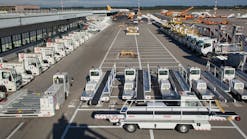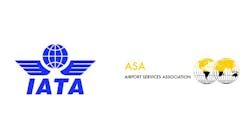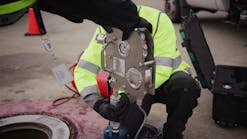IN CASE YOU MISSED IT THERE APPEARS TO BE AN effort on the part of some FSDOs around the country to force local, small, certified repair stations to surrender their repair station certificates the easy way. I have been told that rather than bring a certificate action against the repair station, individual FAA inspectors have mentioned impending civil fines unless your repair station certificate is surrendered. Is this really happening?
Some have noticed an uptick in the number of smaller repair stations having this type of conversation with their inspector. A fine can be significant and at times the shop may say,”OK here is your certificate, I really don’t need it anyway,” and signs a voluntary surrender form. Usually a letter is sent to the repair station describing any possible non-compliance situation and the potential outcomes such as certificate action or a civil penalty fine.
As you well know, a certificate action can be delayed by simply asking for a hearing before an administrative law judge. Meanwhile, you continue to work with your CRS certificate and wait out the result. You do not need a lawyer to do this of course, but it usually helps.
CHOICES
There are many repair and overhaul shops, and manufacturing firms that need the repair station certificate in order to continue in business. That is, they need a CRS in order to do work on their own production items. When you deal with a MIDO or ACO, you sometimes rely on your CRS in order to present an orderly and in some cases a more formal presentation for approval of your product.
This of course does not include the shops that can simply use the individual Inspection Authorization of their employees in order to perform annual inspections and other functions requiring an IA. You can get by without the CRS certificate but there are certain manufacturing and repair and overhaul people who can’t do what they do without it.
Also, keep in mind that once you sign the document voluntarily surrendering your certificate, (or any airman certificate for that matter) if that’s what you choose to do (they make you sign a release of course), a repair station certificate may not be issued until you re-apply and again meet all the requirements prescribed for its issuance no matter how long you have been in business. The bureaucratic thoroughness could bury you in paperwork to a point where many just give up the process leaving the CRS certificate terminated for good. So forget about re-applying later on and expect to get it (your original CRS) back anytime soon, it’s gone for good. Don’t surrender your certificate under any circumstances.
A FORMAL HEARING
Demand proof of whatever you are being cited for, either a certificate action or a civil (fine) penalty, and the regulatory basis supporting the issue you are being cited for. Keep in mind that you are entitled to a hearing before an administrative law judge and/or before your own local Federal District Court in accord with recent regulatory changes. My observation has been that your District Court would probably be more sympathetic to your cause.
According to recent news articles, the U.S. District Courts are swamped with a growing backlog of cases and you could be waiting a long time before your case comes up to be heard. Of course your case can also be heard by a magistrate judge who normally plays only a supporting role in the court, but you must agree in advance to have your case heard by the magistrate rather than a district court judge. Magistrate judges are considered “junior” and are not appointed by Congress but rather by a local committee and serve eight-year terms. You have an absolute right to have your case heard by a district court judge (7th amendment subject to criminal cases 6th amendment priority). Also, you can appeal any adverse ruling which also takes forever, by that time you may be retired or parties dead. So much for some Federal Court 101.
Keep in mind that if you sell or attempt to transfer your CRS certificate the new owner of your business will have to acquire his own certificate if he chooses to operate a repair station. The person can’t just step into the shoes of the seller and operate under the existing certification, although that would be a nice result. The FAA will require the new owner to apply for his own certificate and in today’s FAA world, I have been told this could take years to acquire, after you file a required letter of intent. (FAR 145.57(b), 145.51).
INCONSISTANCY AND SOLUTIONS
The FAA and its inspectors in some instances of the enforcement and regulatory process have been known to be inconsistent in interpretation and application of the guidance and regulations. Cases such as these shows there may be some need for the FAA to re-evaluate its own effectiveness, care, and training in the management and supervision of the personnel selected to provide the oversight for Part 145 operators. Perhaps it should be using more meaningful audit techniques. And sometimes inspectors, like owners and technicians, make mistakes. The coming and going of new and old inspectors can lead to accuracy and more importantly consistency problems in the inspection and audit policy. This is why FAA employees are shielded from civil liability by many courts for any of their errors.
The reason we have a Consistency and Standardization Initiative Review Procedure is to try to get some sort of uniformity in the decision and certification process.
There are probably a lot of surrender cases out there. If you know of any let me know as I’m trying to get some idea of how far this situation goes. The U.S. District Courts and NTSB could review this process. Take note of any actions you come across. Congressional representatives’ offices can also be helpful in examining these cases. Time will tell. You can get information on the Consistency and Standardization Initiative by visiting www.FAA.gov.
Stephen P. Prentice is an attorney with an Airframe and Powerplant certificate, is an ATP rated pilot, and is a USAF veteran. Email:[email protected].




